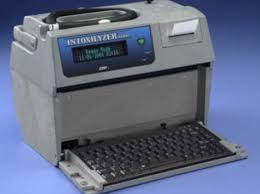Top Rated Tampa DUI Attorney: Aggressive Local Defense for Hillsborough County

Get Help from an Experienced Tampa DUI Lawyer
What to Expect After a DUI Arrest in Hillsborough County
If you’ve been arrested for DUI in Hillsborough County, here’s a general overview of what happens next:
- You will be booked into jail and potentially held until bond is posted or conditions are met.
- You will receive a court date for the George Edgecomb Courthouse in downtown Tampa.
- Your driver’s license faces automatic suspension if timely action is not taken.
- You may be evaluated for pretrial release programs or DUI school eligibility.
Knowing these steps early can significantly impact the outcome of your DUI case in Tampa.
Learn what to expect after an arrest in Tampa, Florida.
Protecting Your Driver’s License: The Critical 10-Day Window
As mentioned, you have only 10 days after a DUI arrest in Florida to request a formal hearing to try and save your driver’s license. Failing to meet this deadline will result in an automatic suspension, even before your court case is resolved.
Do not delay. Learn how to protect your driving privileges and fight your suspension today.
Potential DUI Penalties in Tampa, Florida
The penalties for a DUI conviction in Tampa depend on several factors, including your prior history, blood alcohol content (BAC) level, and the specific circumstances of your DUI case.
Here are potential penalties you could face for a DUI in Tampa:
- First DUI: Up to 6 months in jail, $500–$1,000 fine, 6–12 month license suspension.
- Second DUI (within 5 years): Mandatory jail time, ignition interlock device, 5-year license suspension.
- Third DUI (within 10 years): Felony charge, up to 5 years in prison.
- DUI with Injury or Death: Felony DUI, mandatory prison sentences.
In addition to these, DUI convictions in Florida often result in:
- Mandatory DUI school and substance abuse evaluations.
- Vehicle impoundment.
- Probation terms.
- Significantly higher insurance premiums.
Full breakdown of penalties Penalties for DUI in Tampa, Florida.
DUI Manslaughter Charges in Florida
Driving under the influence accidents resulting in death are prosecuted very severely under Florida law. If you are charged with DUI manslaughter in Hillsborough County, you are facing one of the most serious offenses in the Florida criminal code. Under Florida Statute 316.193(3)(c)(3), DUI manslaughter is typically classified as a second-degree felony, potentially punishable by:
- Up to 15 years in prison.
- Up to $10,000 in fines.
- Mandatory permanent revocation of your driver’s license.
- A mandatory minimum prison sentence under Florida’s sentencing guidelines.
- Possible designation as a Habitual Felony Offender (HFO) if you have prior convictions.
Furthermore, DUI manslaughter charges involving leaving the scene of an accident can elevate the offense to a first-degree felony, carrying up to 30 years in prison. Defending against DUI manslaughter charges requires a highly detailed and aggressive legal strategy. Key defense areas may include challenging the traffic stop, suppressing evidence, questioning toxicology results, examining accident reconstruction, and establishing causation. Florida prosecutors aggressively pursue these cases, which are complex and often involve scientific evidence and expert witnesses. Early intervention by an experienced Tampa DUI Attorney is critical.
At The Brancato Law Firm, P.A., we have decades of experience defending serious felony cases, including DUI manslaughter, right here in Hillsborough County. When everything is on the line, we are prepared to fight for your future against these severe DUI charges.
DUI for Commercial Drivers in Florida
If you hold a commercial driver’s license (CDL) in Florida, a DUI arrest can have devastating, career-ending consequences. Florida law imposes strict penalties on CDL holders facing DUI charges:
- A first DUI conviction results in a one-year disqualification of your CDL.
- A second DUI conviction leads to a lifetime disqualification of your CDL.
These penalties apply even if you were driving your personal vehicle at the time of the arrest. Additionally, commercial drivers are held to a lower BAC standard of 0.04% when operating a commercial vehicle. At The Brancato Law Firm, P.A., we understand the severe impact a CDL suspension has on your livelihood after a DUI arrest. We work aggressively to protect both your criminal record and your ability to continue working in the Tampa Bay area as your Tampa DUI Lawyer.
Common Mistakes to Avoid After a DUI Arrest
Many individuals make critical errors after a DUI arrest in Tampa that can harm their defense. Avoid these common mistakes when facing a DUI in Tampa:
- Missing the critical 10-day deadline to challenge your license suspension.
- Speaking to law enforcement without your Tampa DUI Attorney present.
- Posting details about your arrest on social media.
- Underestimating the seriousness of a first-time Tampa DUI offense.
Learn how to avoid these mistakes after a DUI arrest in Tampa, Florida.
Penalties for Refusing a Breath Test in Tampa
Florida’s implied consent law requires drivers lawfully arrested for DUI to submit to a breath, blood, or urine test. Refusing a lawful breath test carries significant consequences for a DUI in Florida:
- First refusal: A one-year driver’s license suspension.
- Second refusal: An 18-month suspension and an additional misdemeanor criminal charge.
Refusals can also be used as evidence against you in court for your Tampa DUI case. However, defenses may exist, including challenging the legality of the stop, whether the implied consent warning was properly given, or if you were lawfully arrested before the refusal was requested. If you refused a breath test in Tampa, it is crucial to act quickly to protect your license and build a strong defense with a Tampa DUI Attorney.
Local DUI Enforcement in Tampa and Hillsborough County
Our firm defends DUI cases resulting from stops and arrests made by local law enforcement agencies serving the Tampa area, including:
- Tampa Police Department (TPD).
- Hillsborough County Sheriff’s Office (HCSO).
- Florida Highway Patrol (FHP).
We routinely handle DUI cases at the George Edgecomb Courthouse and represent clients throughout Tampa, Brandon, Riverview, Plant City, South Tampa, Westchase, and New Tampa.
Defenses We Build for DUI Charges in Tampa
We meticulously examine every detail of your case to build a strong defense against DUI charges in Tampa, including:
- Whether the initial traffic stop was legal.
- If field sobriety exercises were administered correctly.
- The accuracy and reliability of breath or blood test results in Tampa DUI cases.
- Any medical conditions that could have mimicked impairment.
- Any procedural violations by law enforcement during your Tampa DUI arrest.
DUI cases often involve complex legal and scientific issues, and early, aggressive legal work from a Tampa DUI Attorney can potentially lead to dismissed charges, reduced penalties, or even a full acquittal.
Challenging the Intoxilyzer 8000 in Florida DUI Cases
In Florida, the primary device used for breath testing in DUI cases is the Intoxilyzer 8000. While prosecutors often present breath test results as scientifically infallible, the reality is very different. The Intoxilyzer 8000 is based on technology that has not kept pace with modern advances. It is an ugly, bulky box that looks more like a 1980s Smith Corona typewriter than a modern scientific instrument.

Flaws in Breath Test Evidence
To put it into perspective:
- In the 1980s, televisions were massive furniture-style consoles with tiny, low-definition screens.
- Today, we have ultra-thin OLED smart TVs and smartphones with stunning resolution and advanced computing power.
- Yet the breath testing technology used to determine guilt in DUI cases looks and operates like it is stuck in the past.
- When everything else in our lives — from cars to communication to medicine — has advanced dramatically, it is fair to question Florida’s reliance on outdated breathalyzer machines for DUI convictions. A person’s freedom should not rest on 1980s technology in a Tampa DUI case.
Common Challenges to Intoxilyzer 8000 Results
In Florida DUI cases, the Intoxilyzer 8000 is the primary breath testing device used. While prosecutors often present breath test results as infallible, these machines are not without their flaws. The technology is outdated compared to modern standards for a DUI prosecution. At The Brancato Law Firm, P.A., as your Tampa DUI Attorney, we routinely investigate and challenge breath test evidence by focusing on potential issues such as:
- Maintenance and Calibration Records: Ensuring the machine was properly maintained and calibrated according to strict protocols for DUI testing.
- Operator Error: Verifying that the breath test operator was certified and followed correct procedures.
- Mouth Alcohol Contamination: Identifying factors like recent mouthwash use, dental work, or acid reflux that can skew results in a DUI breath test.
- Medical Conditions: Considering if conditions like GERD or diabetes could have affected the breath test outcome in your Tampa DUI case.
- Environmental Interference: Checking for potential radio frequency interference (RFI) that could impact the machine’s performance.
Breath test results are not foolproof in Florida DUI cases. Their reliability depends on proper maintenance, operation, and the limitations of the technology itself. When your freedom is at stake in Tampa, every detail matters to your Tampa DUI Attorney. We know how to expose the weaknesses in the government’s breath test evidence.
Problems with Field Sobriety Exercises in Tampa DUI Investigations
When law enforcement stops a driver suspected of DUI in Tampa, one of the first tools they often use is field sobriety exercises. These exercises — such as the walk-and-turn, one-leg stand, and horizontal gaze nystagmus — are promoted as objective ways to detect impairment in DUI cases. But the reality is very different.
Why Field Sobriety Exercises Are Not Fair to Everyone
Field sobriety exercises (FSEs), such as the walk-and-turn, one-leg stand, and horizontal gaze nystagmus, are often used by law enforcement in suspected DUI cases in Tampa. While presented as objective measures of impairment, they are often not a fair assessment. These exercises are not typical daily activities and are often performed under challenging conditions at the roadside during a Tampa DUI stop. More importantly, they do not account for individual differences. Factors like pre-existing injuries, physical conditions, age, weight, nervousness, or natural uncoordination can all impact performance, even when sober.
Unlike the officers who are trained in these exercises for DUI investigations, the average person has no prior experience with them. Law enforcement typically lacks knowledge of a person’s normal coordination baseline, yet they expect everyone to perform the same way. Judging impairment based on unfamiliar tasks performed under stress is a flawed system when prosecuting a DUI in Tampa.
At The Brancato Law Firm, P.A., your Tampa DUI Attorney, we understand how to expose the weaknesses in these “tests” and challenge unfair assumptions made against our clients in Tampa. Field sobriety exercises are not scientific proof of intoxication, and we will ensure the court understands the full context in your Tampa DUI case.
DUI and Actual Physical Control in Florida: Sleeping in Your Car
In Florida, you can be charged with DUI even if you were not actively driving at the time of your arrest. Florida law includes “actual physical control,” meaning you were in a position to operate the vehicle, even if it wasn’t moving. This means that simply being found sleeping in your parked car with the keys in your possession can lead to a DUI arrest and charge in Tampa.
Florida defines actual physical control generally as being inside the vehicle with the capability to operate it, such as having the keys accessible. The vehicle does not need to be running or moving. This broad definition can impact individuals who were trying to make a responsible decision by pulling over to sleep rather than driving while impaired, yet still face a DUI in Tampa. We frame these “sleeping DUI” cases around common sense and fairness to juries. Choosing to pull over and sleep demonstrates good judgment, not impairment. Punishing someone for making the safer choice goes against public safety goals.
At The Brancato Law Firm, P.A., your Tampa DUI Attorney, we aggressively defend DUI cases based on actual physical control in the Tampa area. We challenge the state’s ability to prove intent to drive and highlight that sleeping instead of driving is a responsible decision, not a crime. DUI charges based on sleeping in a vehicle are highly defensible with the right approach when you have an experienced Tampa DUI Lawyer.
Unique Challenges of DUI Trials in Florida
DUI trials in Florida are fundamentally different from most other criminal trials. In many criminal cases, such as those involving violent crimes or major theft, jurors have no personal experience committing the offenses they are asked to judge. However, DUI cases in Tampa are different. Many jurors — whether they admit it openly or not — have personally driven after drinking alcohol at some point in their lives. They may not have been legally impaired or caught by law enforcement, but the personal experience of consuming alcohol and then driving is common. This reality creates a quiet but powerful psychological effect in DUI trials:
- Jurors may be less willing to harshly judge behavior that mirrors something they have done themselves when deciding a DUI case.
- Jurors may set a higher bar for what they personally consider “impairment” in a DUI trial.
- Jurors may view the State’s evidence with more skepticism, especially if it relies on marginal field sobriety exercises or questionable breath test results in a Tampa DUI case.
This dynamic can make DUI cases harder for prosecutors to prove — and it opens opportunities for strategic, thoughtful defense advocacy by a Tampa DUI Attorney.
At The Brancato Law Firm, P.A., we understand how to craft DUI defenses that resonate with jurors’ real-world experiences. We do not treat DUI cases like paperwork exercises. We build defenses designed for the courtroom — defenses that recognize the humanity, experience, and common sense of the people sitting in judgment in a Tampa DUI trial.
If you are facing a DUI charge in Tampa or Hillsborough County, you need a defense that understands not just the law, but the human realities of trial, provided by a skilled Tampa DUI Attorney.
Tampa Attorney Rocky Brancato, Author of How to Choose a Major Crimes Attorney
Attorney Rocky Brancato is the author of How to Choose a Major Crimes Attorney — or Any Criminal Defense Attorney for That Matter, a guidebook available for sale on Amazon. The book offers real-world advice on how to choose the right lawyer when facing serious criminal charges. As a visitor to our site, you can request a free copy at brancatolawfirm.com/tampa-criminal-defense-ebook — whether or not you decide to hire us. We believe it will offer you valuable insight from someone who knows the system inside and out.
Frequently Asked Questions About DUI in Florida
Can you get a DUI in Florida without drinking alcohol?
Yes. DUI charges in Florida apply to impairment caused by marijuana, Delta-8, CBD, prescription medications, or any substance that affects your normal faculties.
What happens if you refuse a breathalyzer in Tampa?
Refusing a lawful breath test in Florida results in an automatic one-year license suspension for a first refusal and increased penalties for subsequent refusals.
How long does a DUI stay on your record in Florida?
A DUI conviction in Florida remains on your criminal record permanently. Florida law does not allow for the expungement or sealing of DUI convictions.
What is the difference between a DUI and a DWI in Florida?
Florida law exclusively uses the term “DUI” (Driving Under the Influence). There is no separate “DWI” (Driving While Intoxicated) charge under Florida statutes. DUI covers impairment by alcohol, controlled substances, or chemical substances.
Will a DUI conviction affect my professional license?
Yes. A DUI conviction may need to be reported to professional licensing boards in fields such as healthcare, education, law, finance, and transportation. This can trigger disciplinary proceedings that could jeopardize your license and career.
Can I get a hardship license after a DUI arrest?
In many cases, yes. If you request a formal review hearing within the crucial 10-day window after your arrest, you may be eligible for a hardship license allowing you to drive for essential purposes like work, school, and necessary daily activities. Taking early legal action is vital to preserving this option.
Why Choose The Brancato Law Firm for Your DUI Defense in Tampa?
When your future is on the line after a DUI arrest in Tampa, experience matters.
- We have over 25 years of courtroom experience.
- Our team includes a former second-in-command of the Hillsborough County Public Defender’s Office.
- We have specialized experience in major crimes and DUI defense.
- We are known for aggressive motion practice and thorough trial preparation.
- We take a client-centered approach focused on protecting your future.
We start building your defense from day one, ensuring you have the strongest possible case.
Protecting Professional Licenses After DUI Arrests in Tampa
For professionals in Tampa with licenses, such as doctors, nurses, teachers, and others, a DUI arrest can threaten more than just your criminal record. We work diligently to minimize or avoid reporting obligations and potential consequences with licensing boards whenever possible after a DUI in Tampa.
Handling DUI Cases Involving Marijuana, Delta-8, and Prescription Drugs in Tampa
Learn more about fighting these charges: Driving High Can Get You a DUI and DUI for Prescription Drugs in Hillsborough County.
How a DUI Conviction Affects Your Insurance in Tampa
A DUI conviction in Florida will have a significant and lasting impact on your auto insurance. Your insurance company may cancel your policy, and you will likely be required to obtain expensive FR-44 insurance for three years after a DUI in Tampa. FR-44 coverage is substantially more expensive than standard insurance, and even a first-time DUI conviction can increase your premiums by thousands of dollars over several years. Aggressively defending your DUI case with a Tampa DUI Attorney is one of the best ways to protect your future financial stability.
Facing DUI Charges in Hillsborough County? Let Us Fight for You
If you are facing DUI charges in Tampa or anywhere in Hillsborough County, you need a lawyer who will actively fight for your future. At The Brancato Law Firm, P.A., we offer decades of courtroom experience, aggressive defense strategies, and a client-first approach to every DUI case in the Tampa Bay area.
Call your experienced Tampa DUI Attorney today at (813) 727-7159 to schedule a consultation. Protect your license. Keep your record clean. Fight your DUI in Tampa. When everything is on the line, experience matters with your Tampa DUI Attorney.





